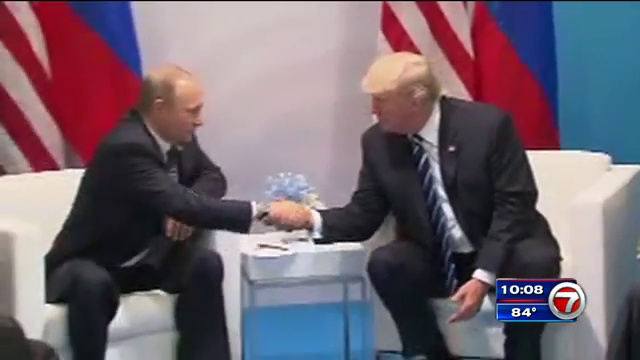WASHINGTON (AP) — The Trump White House picked the worst possible time to criticize a package of new Russia sanctions that is heading toward almost certain and overwhelming approval by Congress.
The administration stayed on the sidelines as lawmakers crafted the legislation popular with Republicans and Democrats alike. And now its complaints over a key section of the bill are drowned out amid Tuesday’s stunning revelations that President Donald Trump’s eldest son met with a Russian lawyer after being promised damaging information on Hillary Clinton supplied by the Kremlin.
“Really none,” Sen. Bob Corker, R-Tenn., chairman of the Foreign Relations Committee, answered when asked what role the White House played in developing the legislation. He said Secretary of State Rex Tillerson knew the bill was being drafted, but the State Department didn’t offer any substantive advice before it passed the Senate last month with 98 votes.
“This was not done in the dark,” Corker said.
Many lawmakers viewed the president’s desire for warmer relations with Moscow warily long before Trump’s son released emails that showed him searching disparaging information on Clinton thought to possibly be available through sources connected to the Russian government. They’ve supported inquiries by the House and Senate intelligence committees into Russia’s meddling in the presidential election and praised the Justice Department’s choice of former FBI Director Robert Mueller to lead a separate investigation into whether the Trump campaign colluded with Moscow.
Trump didn’t help matters when he refused to publicly denounce Vladimir Putin the same way his staff insisted he did in private during a meeting last week with the Russian leader.
The upshot is that Trump, still eager for a big win on Capitol Hill, may face a difficult choice instead: Sign the sanctions bill into law and possibly scuttle his bid for a new partnership with Russia — or veto the legislation, set off an outcry and risk having that decision overturned by Congress.
Despite a procedural dispute that has snagged the bill, Speaker Paul Ryan, R-Wis., told reporters Wednesday that the House will resolve the issue and get the bill moving as quickly as possible.
“You know me on this issue, I’m a Russia hawk, I believe in strong, bold Russian sanctions,” Ryan said.
The dearth of constructive input from the administration for an important piece of legislation may stem from the failure to properly staff the State and Treasury departments, the federal agencies primarily responsible for administering sanctions programs. The White House has blamed Democrats for obstructing Trump’s qualified nominees. But Democrats fired back, saying it’s the administration’s fault for moving at a glacial pace to fill key vacancies.
Either way, White House objections over the bill come too late to matter. The section of the bill the administration dislikes has strong bipartisan backing.
The provisions would require a congressional review if Trump seeks to ease or end the sanctions against Moscow. The provisions are styled after 2015 legislation pushed by Republicans and approved in the Senate that gave Congress a vote on whether then-President Barack Obama could lift sanctions against Iran.
Marc Short, the White House legislative director, said Monday that the sanctions review section “sets an unusual precedent of delegating foreign policy to 535 members of Congress.”
Officials from the Treasury and State departments met last week with House congressional staff in a belated attempt to voice their concerns over the congressional review. They said the section would infringe on the president’s executive authority.
But Corker predicted the House would soon pass a sanctions bill “almost identical” to the legislation that cleared the Senate easily in mid-June. Only one Republican, Sen. Rand Paul of Kentucky, opposed the bill, which also slaps Tehran with new sanctions.
The administration had its chance.
Tillerson had the ideal forum to voice concerns and objections when he testified before the Foreign Relations Committee on June 13, the morning after Senate Republicans and Democrats agreed on the Russia sanctions legislation.
But Tillerson was ambiguous when Sen. Bob Menendez, D-N.J., asked him about the Russia sanctions bill. He told the committee he was still reviewing the proposal, but cautioned lawmakers against legislation that would tie the president’s hands during negotiations with Putin.
Two days later, the Senate approved the bill slapping sanctions on Russia and Iran.
The House Republican leadership hasn’t yet scheduled a vote on the bill, although one is expected before Congress breaks for the August recess. How soon will depend on how quickly a dispute can be resolved over a revision to the bill made after the Senate passed it.
House Democrats have charged that the change undercuts their ability to oppose any potential attempt by Trump to lift or ease the Russia sanctions. That authority, according to the revision, will rest solely with Ryan. The bill leaves intact the ability of individual senators regardless of party to ask for a vote on what’s known as a resolution of disapproval.
Copyright 2024 The Associated Press. All rights reserved. This material may not be published, broadcast, rewritten or redistributed.

